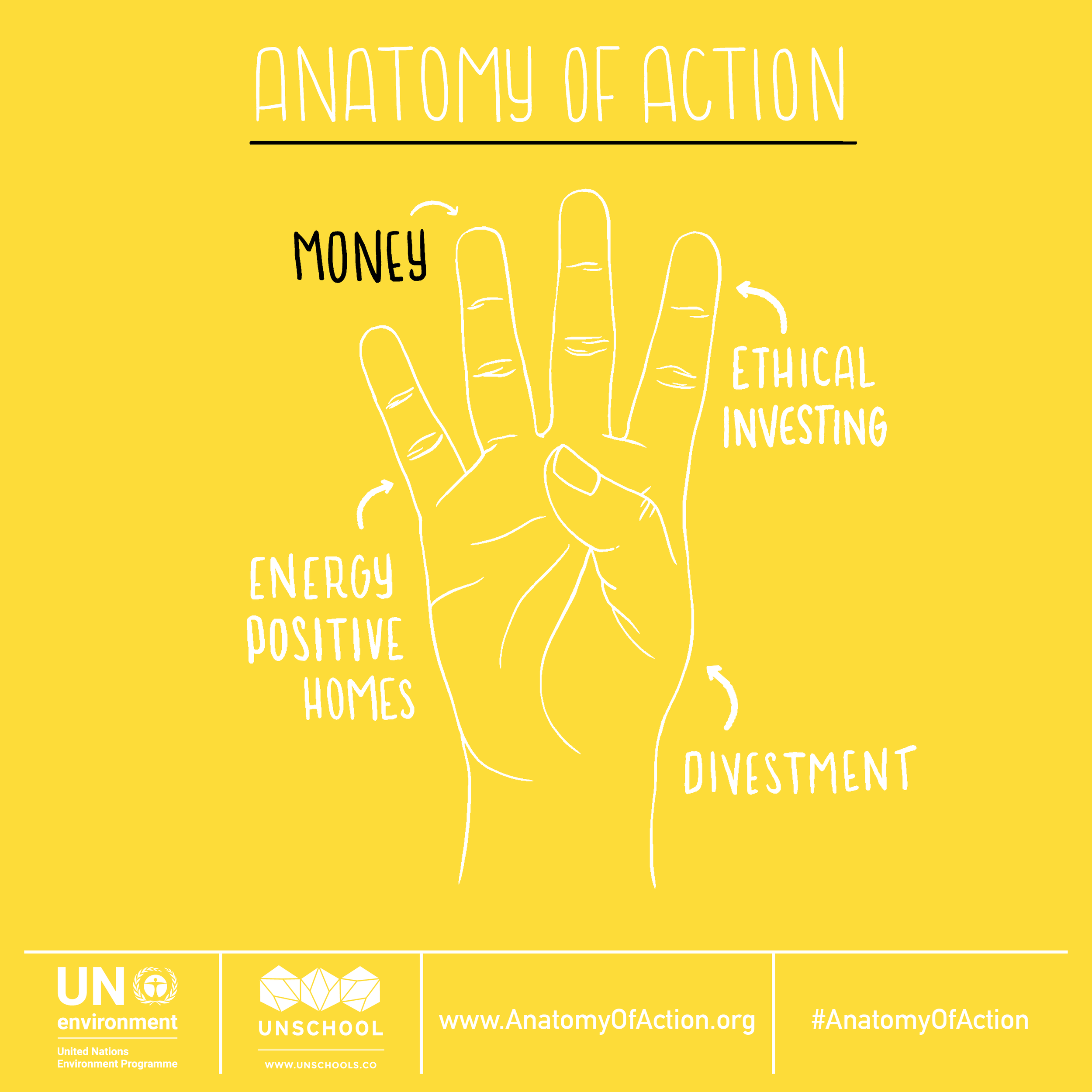
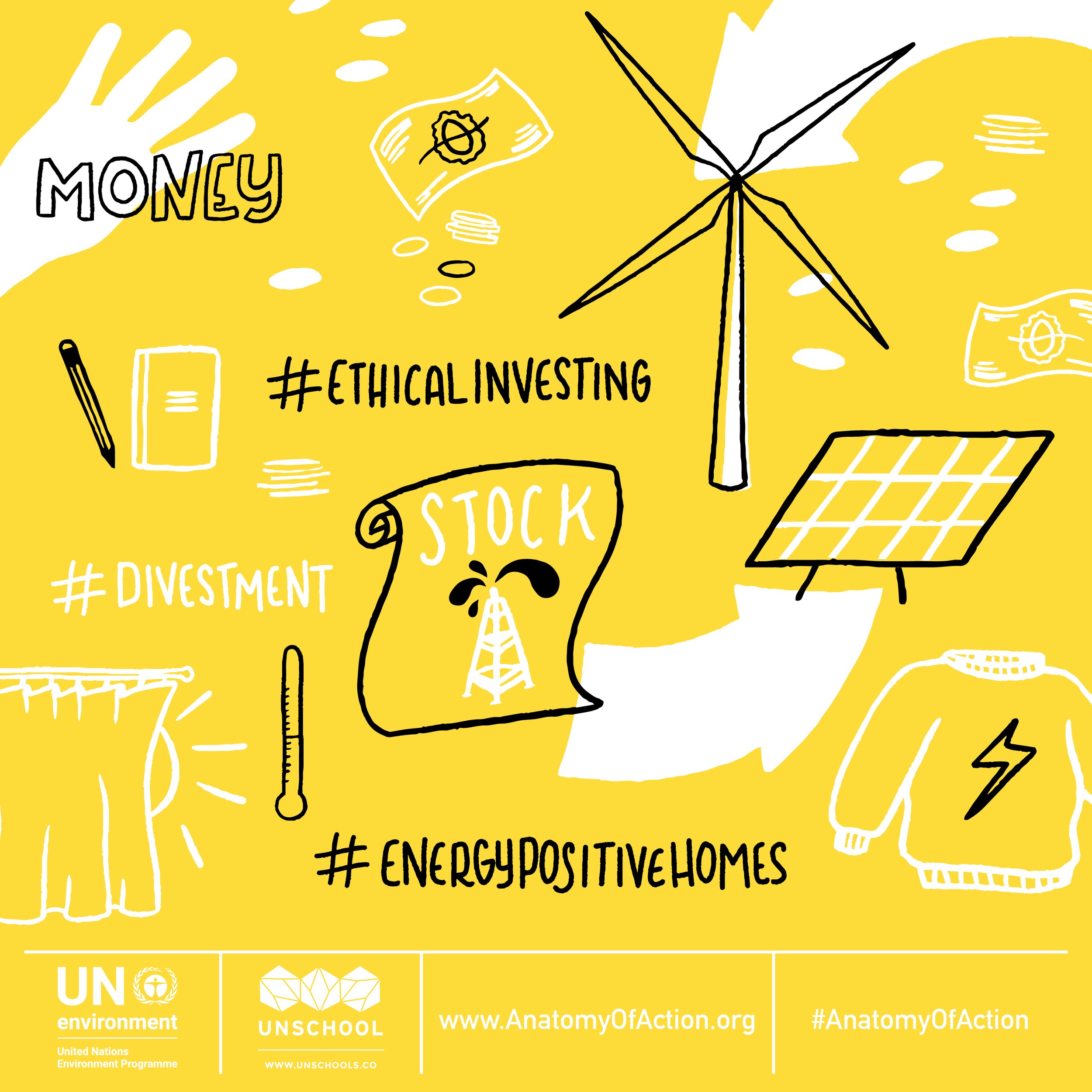
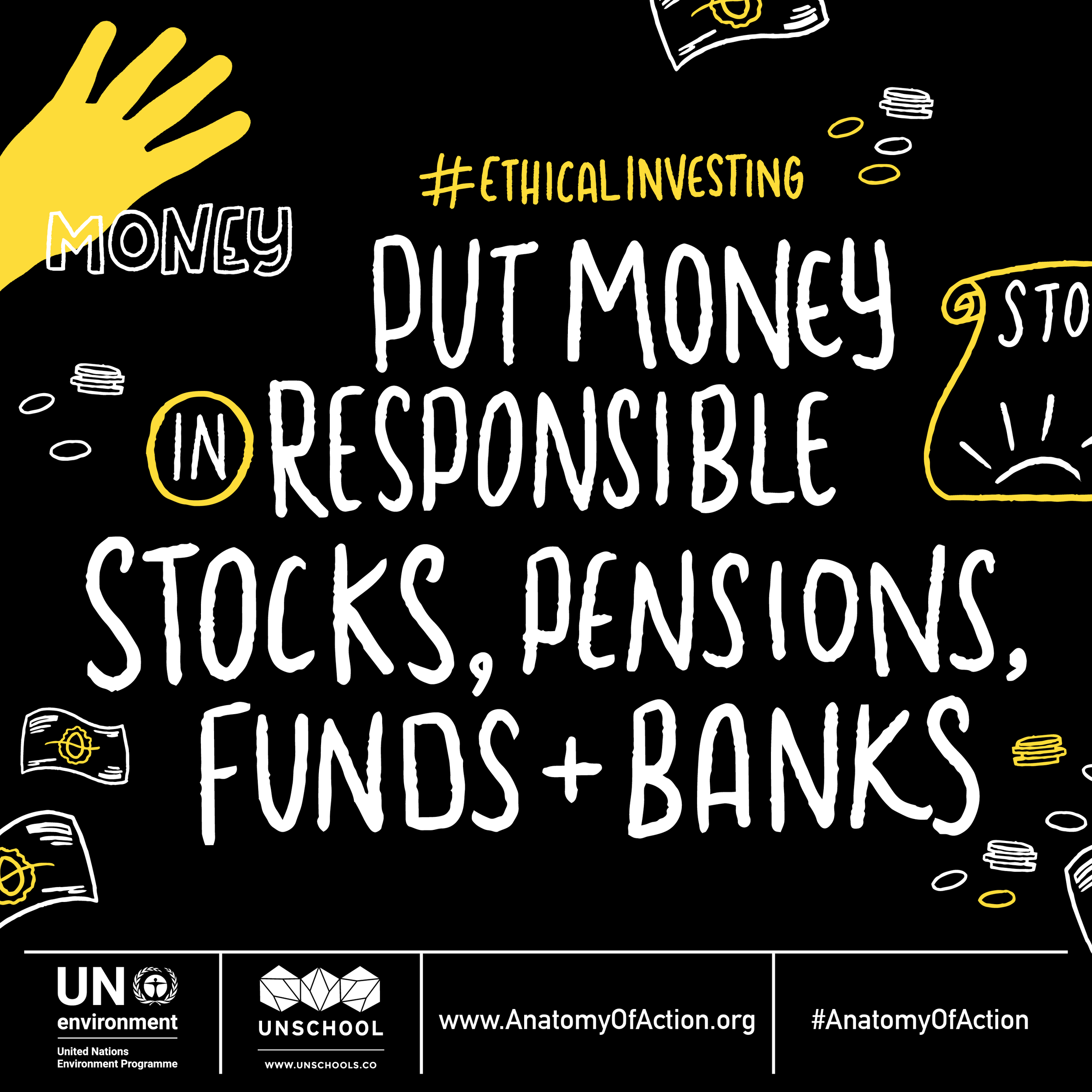
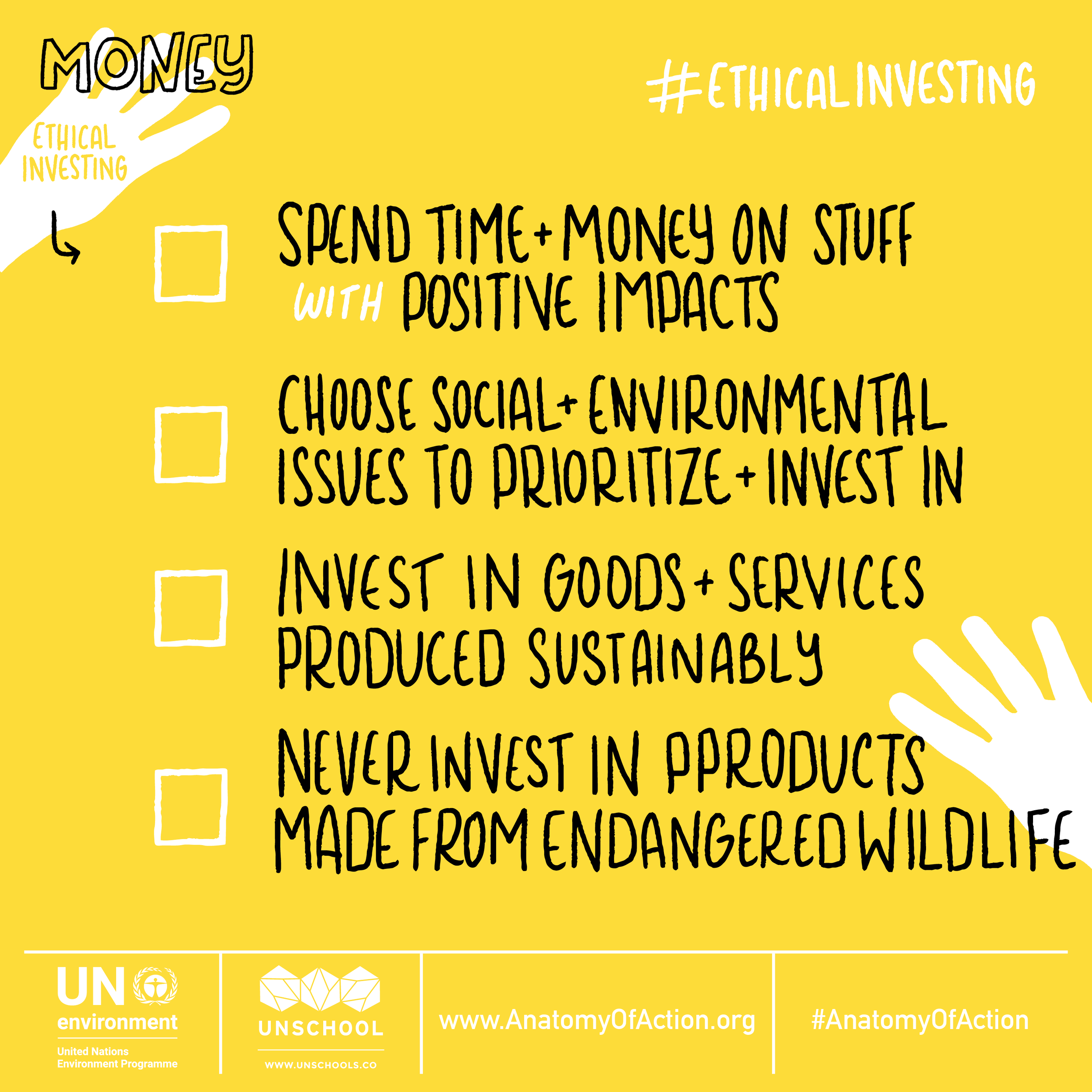

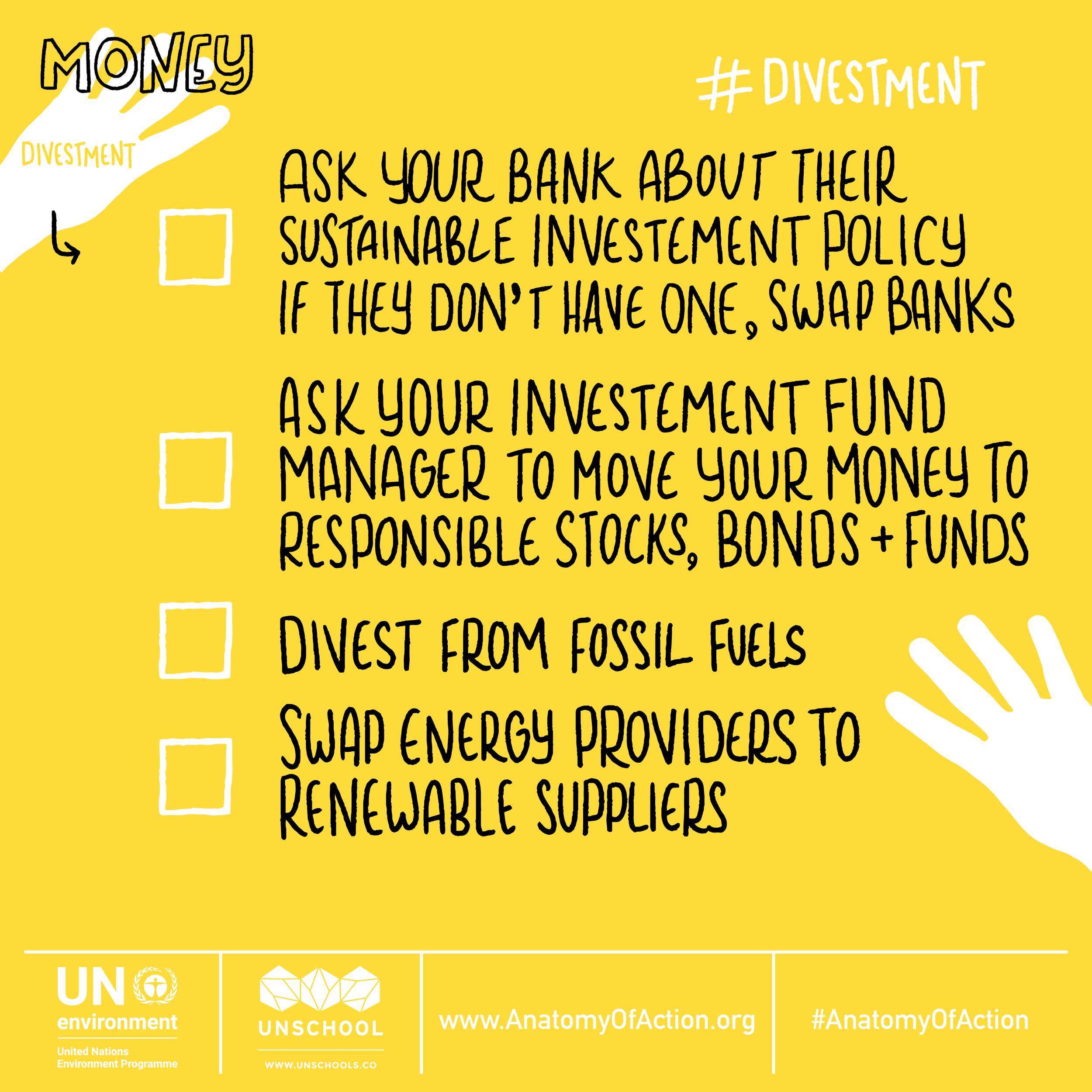
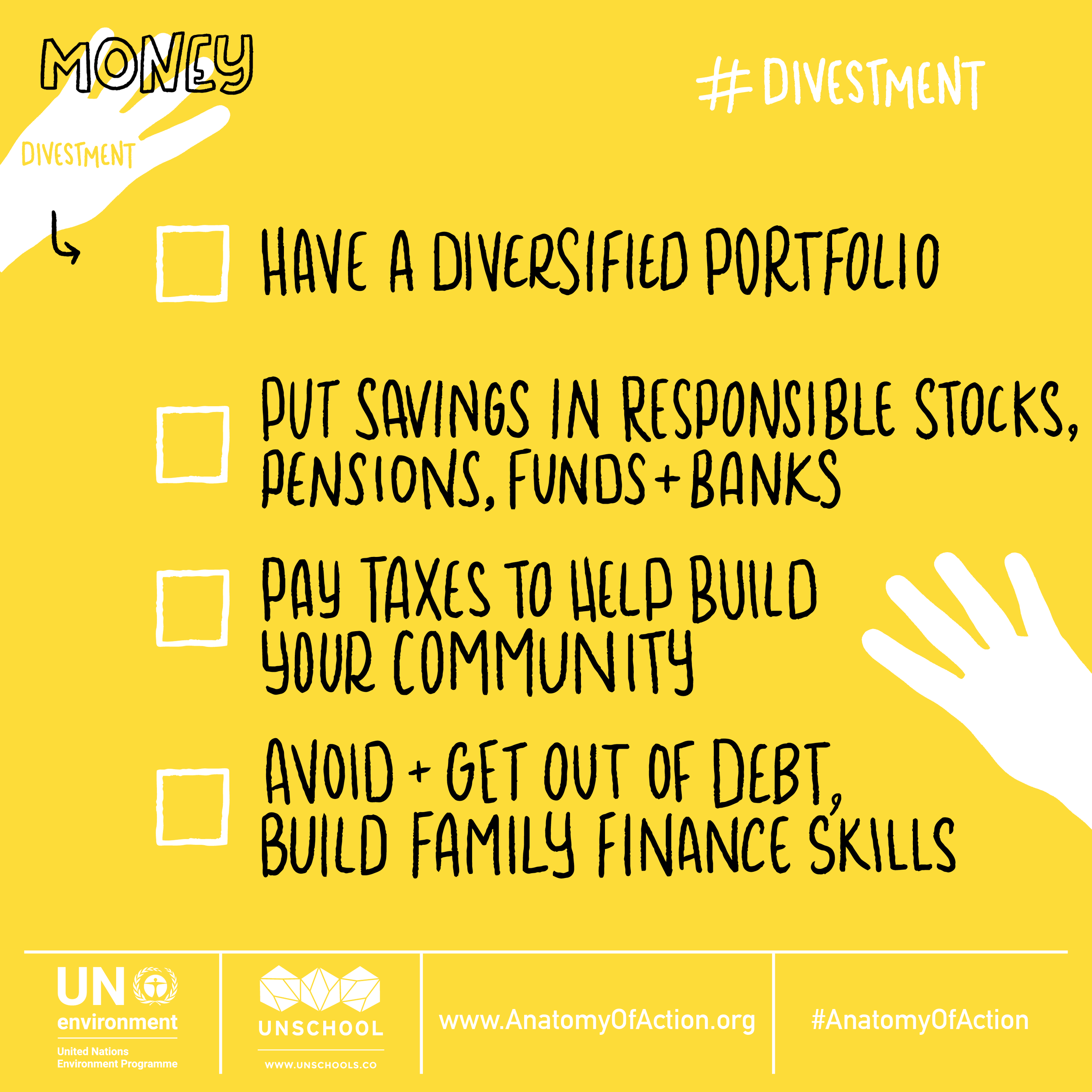
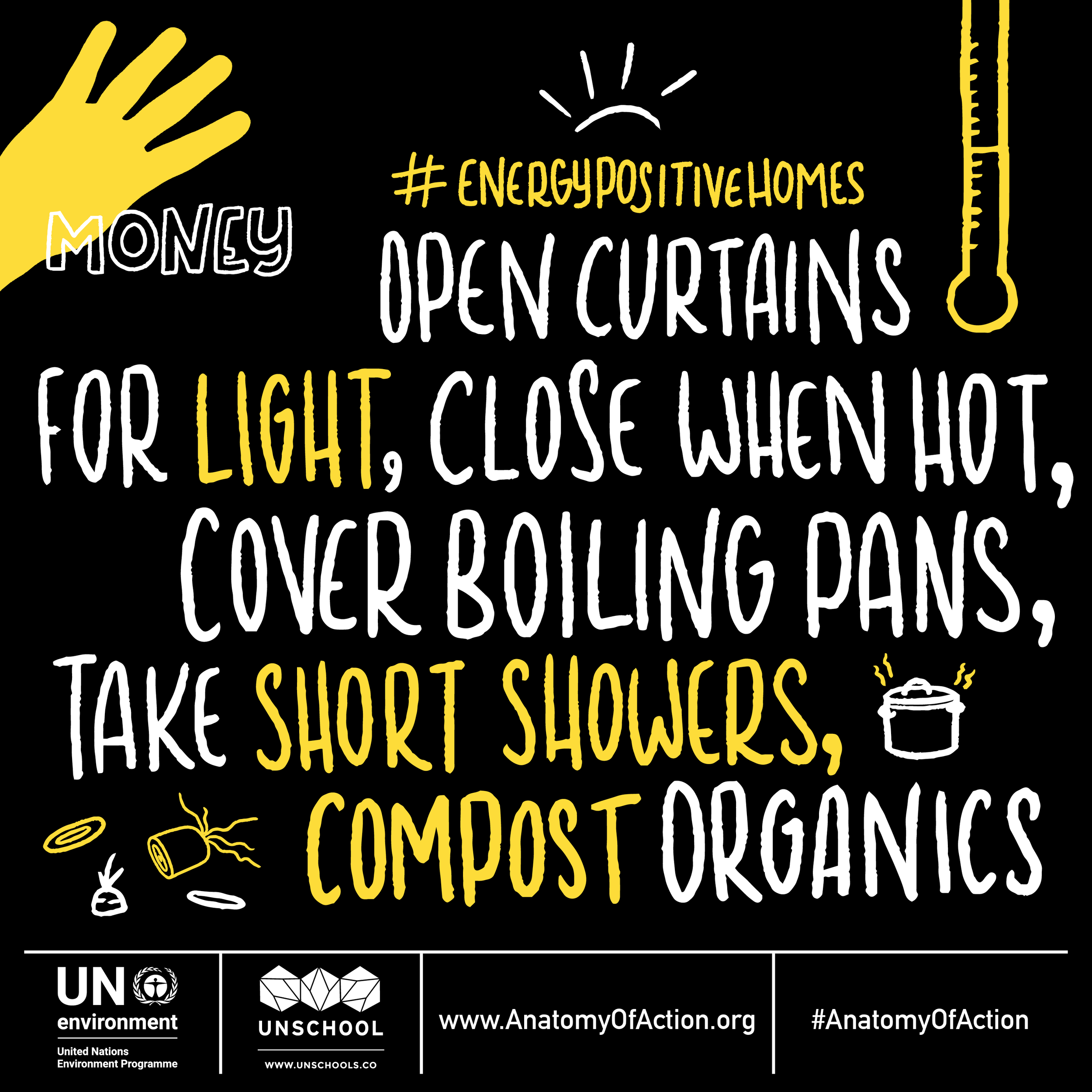
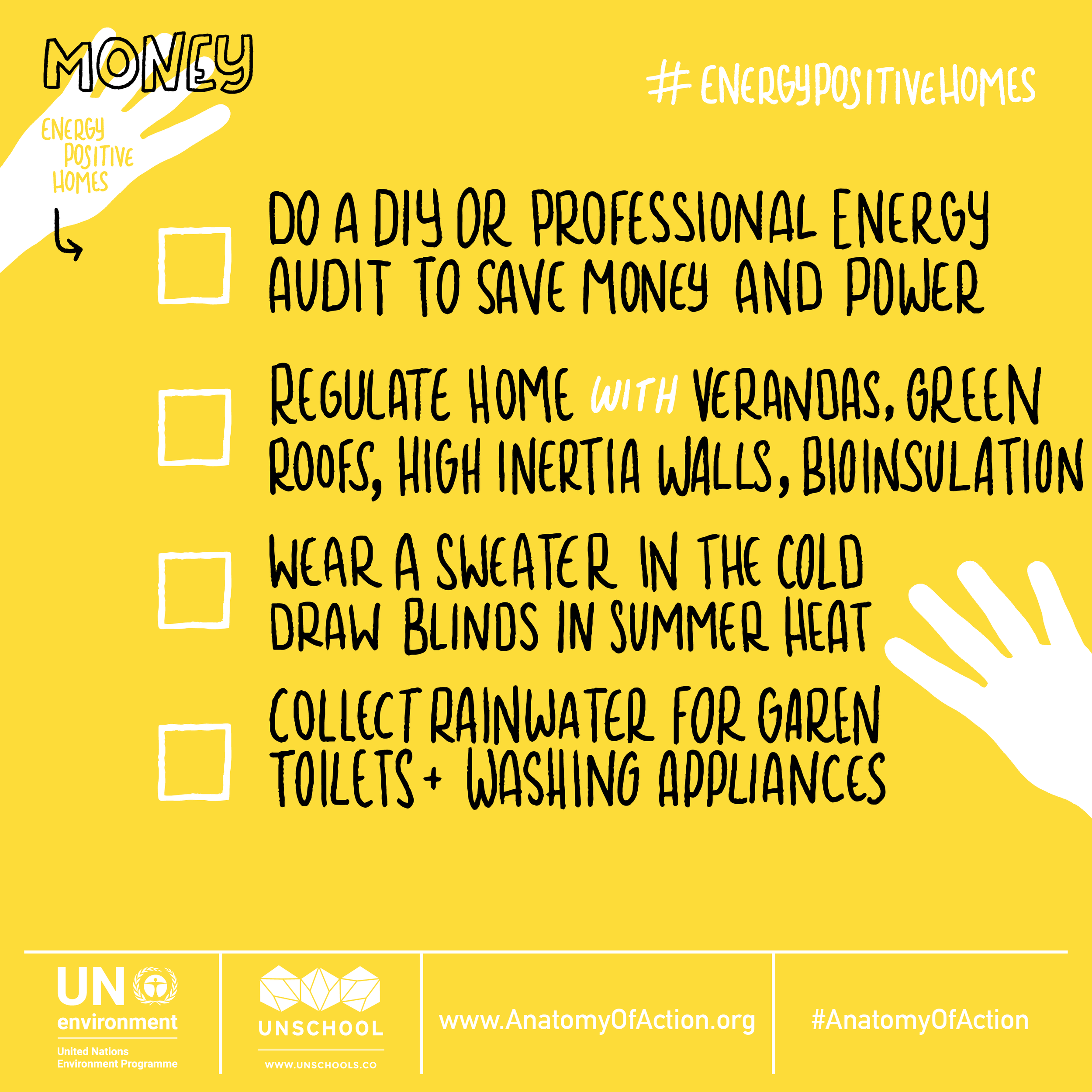

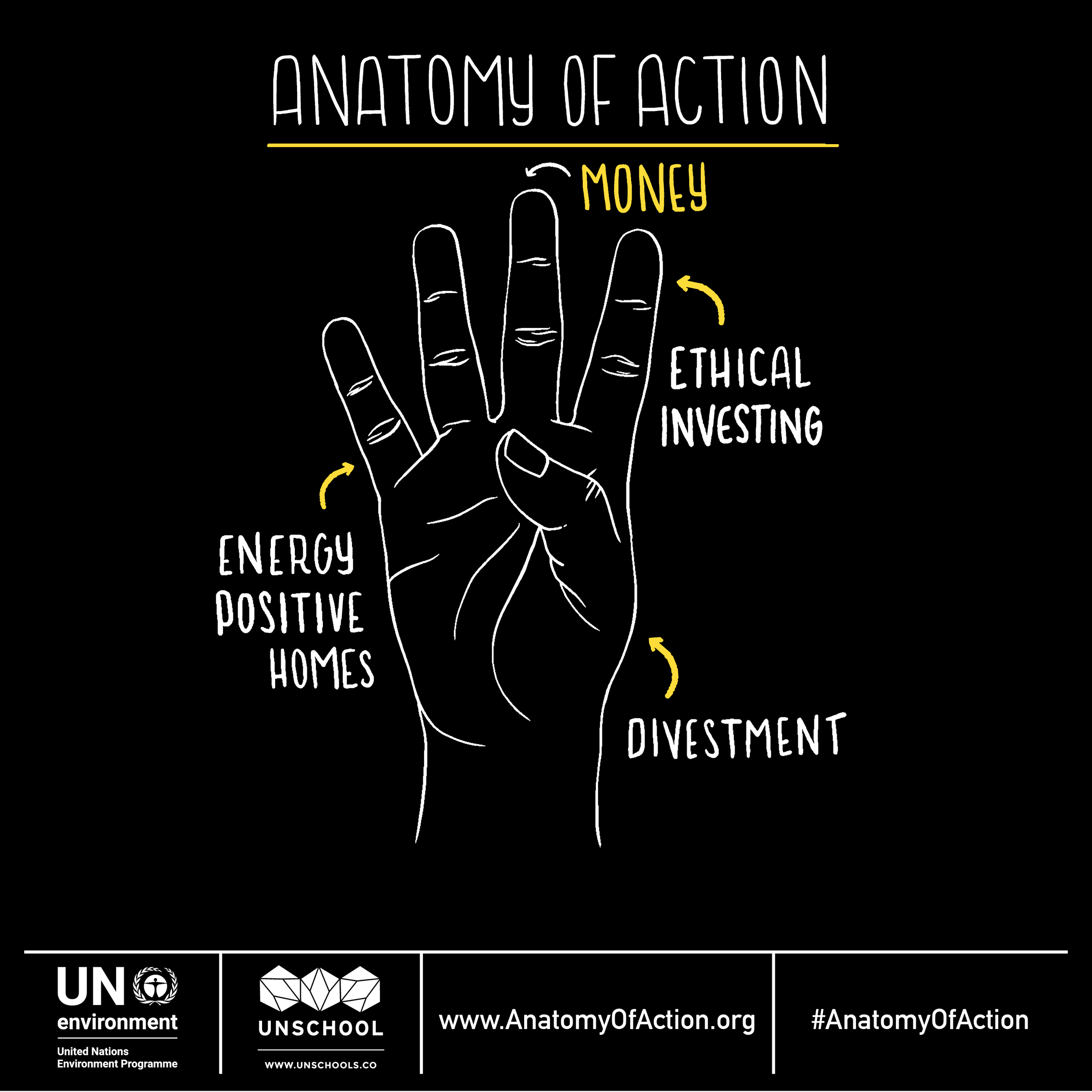
THE 3 KEY ACTIONS
ETHICAL INVESTING
Use your principles to guide investing and consider socially and environmentally responsible options
DIVESTMENT
Actively swap your financial institutions or services to more sustainable options
ENERGY POSITIVE HOMES
Enhance your comfort, save energy and money by adapting your home and your habits to be more efficient

HOW-TO: ETHICAL INVESTING
Use your principles to guide investing and consider socially and environmentally responsible options
Spend time and money on things that have positive impacts
Decide on your priority social and environmental issues and invest accordingly
Ask your bank about their sustainable investment policy, and if they don't have one, then swap banks
Speak up and voice your preference for sustainable investments - look at long-term drivers that affect company performance
Invest in goods and services produced in sustainable ways
Never invest in products made from endangered wildlife
Invest in a diversified portfolio (don’t put all your eggs in one basket)
Put savings in responsible stocks and investments, including pensions and banks
Pay taxes to help build your community
Advance your family financial skills and financial management to avoid going into or to start to get out of debt
WHY IS ETHICAL INVESTING SO IMPORTANT?
If you’re not investing responsibly, you’re investing irresponsibly. Everything we spend money on has an impact on people and the planet, so when you are deciding on big or small purchases of products, services, and investments, you can influence the types of goods and services you want to see more in the future. You have the power as an individual to choose what your money supports (and what not to support); this goes for both the purchase of goods and services as well as your investments in stocks and bonds. Investing in the future is not just about what stocks you may purchase but also about the companies you invest in every time you consume something. Opting for financial planning that considers your economic impacts and where you make ethically motivated choices can support both your family and your community. Choosing to invest a bit more in locally produced goods and services can have really strong positive economic outcomes as it injects cash into your local community.
SHOW ME THE SCIENCE!




















HOW-TO: DIVESTMENT
Actively swap your financial institutions or services to more sustainable options
Move your money; ask your bank how they invest your money. If it is in fossil fuels or other unsustainable industries (such as weapons, tobacco, etc.), then move banks and tell your bank why you did
If you have a retirement fund, you could be inadvertently investing in unsustainable industries. If so, ask your fund manager to move to a more responsible fund
For investments in stocks, bonds, and funds, you can avoid investing in companies you believe are harmful and choose to invest in those that support more sustainable efforts
Swap your energy provider to a non fossil fuel based provider or support collective or community-run wind and solar farms
Divest from fossil fuel or unethical companies
WHY IS DIVESTMENT SO IMPORTANT?
Divestment is when people move away from industries and commercial activities that are unsustainable and instead choose investments, banks, energy providers, and other companies that are supporting renewable options, sustainable consumption and production, and industry development. As more and more people do this, it sends a message to companies to consider their business models and actions to support renewable energy, sustainable technologies, and more responsible products.
SHOW ME THE SCIENCE!
















HOW-TO: ENERGY POSITIVE HOMES
Enhance your comfort, save energy and money by adapting your home and your habits to be more efficient
Find ways to save on your energy bill via do-it-yourself or professional audit of energy used/saved/lost in your home, and make simple changes
Regulate home temperatures better by adding verandas, green roofs, high inertia walls, and bio-based insulation
Adapt to the season: stay comfortable and save energy (wear a sweater, draw blinds in summer)
Take simple steps: seal windows and doorsteps, avoid thermic bridges, install double glass glazing, use LED bulbs, invest in high inertia radiators
Change habits: open the curtains for natural light, close shades in hot climates, cover pans when boiling, spend less time in shower, compost organics
Produce your own energy: install a small-scale solar installation to power your home
Collect rainwater and reuse it for gardening, toilets, and washing machines
Use appliances as intended; consider buying more energy and water-efficient appliances when replaced
Compare available energy providers and choose a more sustainable one (renewable energy).
WHY IS HAVING AN ENERGY POSITIVE HOME SO IMPORTANT?
Sustainable constructive modes, appliances, and behaviors at home can dramatically reduce emissions and promote climate change mitigation. Energy efficiency and renewables can save you a lot of money, generate utility savings over time, and increase the value of your property. Making your home more sustainable can also help support the local economy and can increase your level of comfort by enhancing the quality of your life. Swapping to renewable energy supply by changing the energy providers is another step towards sustainable energy, but most of the savings can be attained through small technical interventions into the home to ensure it is well insulated against hot and cold weather.
SHOW ME THE SCIENCE!






















